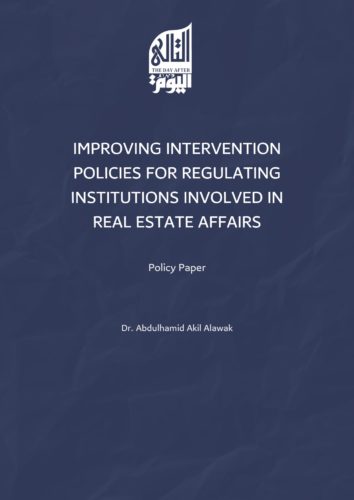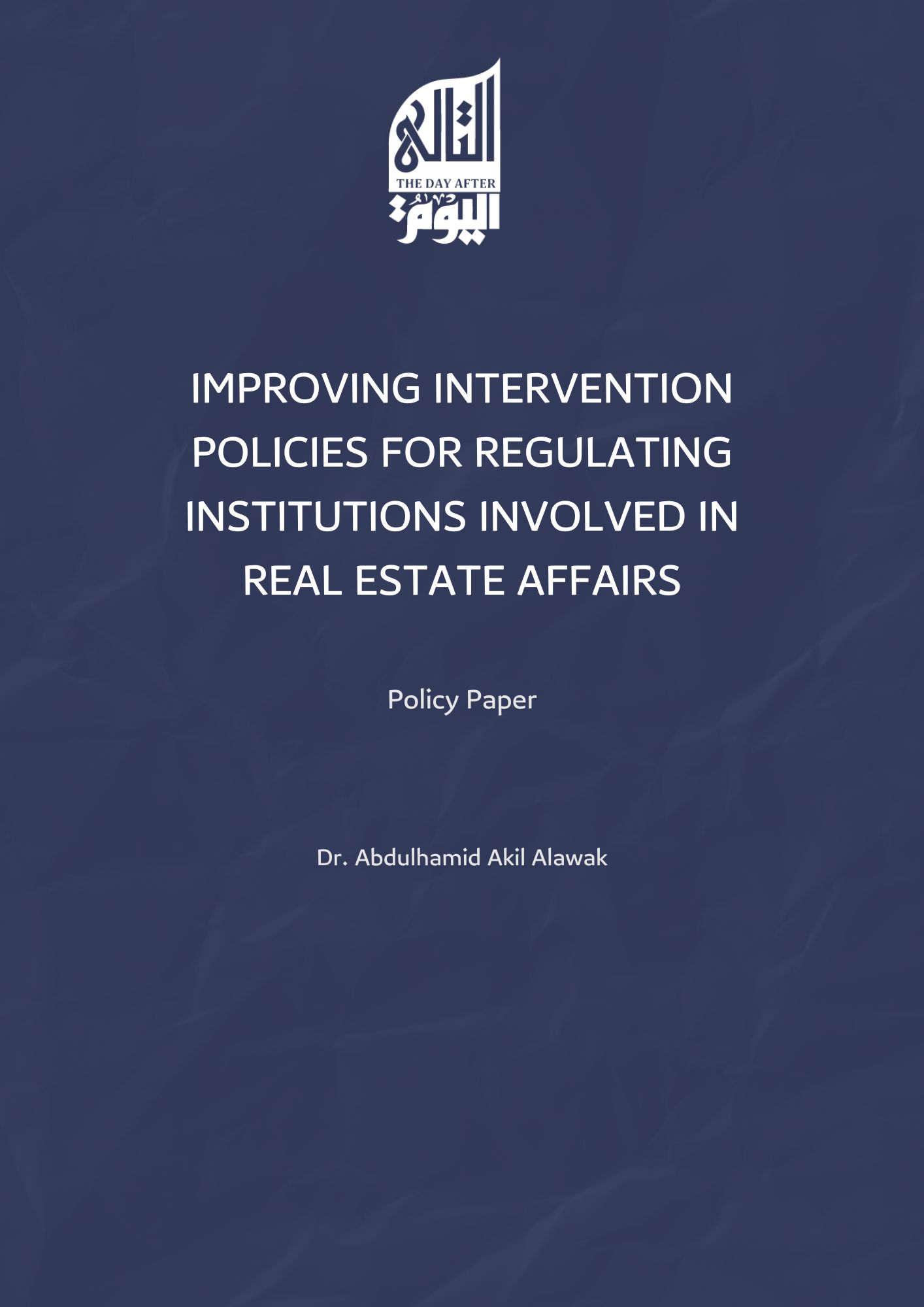
Date: April 2023
It is impossible to assess the performance of institutions involved in real estate affairs without considering the performance of public institutions in the Syrian state as a whole. There are common characteristics that define government institutions, including poor institutional capacity and failure to achieve their stated goals. Many institutions often create ambitious plans without developing practical implementation plans, and they may lack the necessary financial and human resources, as well as performance indicators to monitor their implementation and impact. Furthermore, administrative and financial corruption, accompanied by nepotism, further contribute to the challenges faced by state institutions. These factors collectively put forward a realistic picture of the state institutions in Syria, which the regime has strived to achieve.
Accordingly, the reformation of real estate organizations and development institutions necessitates a comprehensive reform of government institutions, as well as addressing corruption and nepotism. In addition, institutions involved in real estate affairs have their own specific issues that further contribute to the overall challenges. These include institutional overlap, with at least ten major government institutions involved in various aspects of real estate regulation and development, from planning to implementation to supervision and follow-up.
The shortcomings in the real estate sector are evident, as they have failed to keep pace with population growth and have not effectively utilized financial and human resources, resulting in the inability to meet the housing needs of citizens. As a result, slums have proliferated throughout the country, highlighting the clear deficiencies in real estate work.
Real estate institutions have a crucial role in safeguarding an important human right, namely the right to housing. Therefore, the culture of these institutions and their employees should be grounded in democracy and human rights, with the ultimate aim of securing this fundamental right.
This leads us to consider the following questions: What effective policies can be implemented to enhance the performance of real estate institutions? How can conflicts in roles, responsibilities, or powers among different institutions involved in real estate affairs be resolved in order to foster complementary relationships among them? To address these issues, we propose policies aimed at regulating the functioning of various types of real estate institutions.
